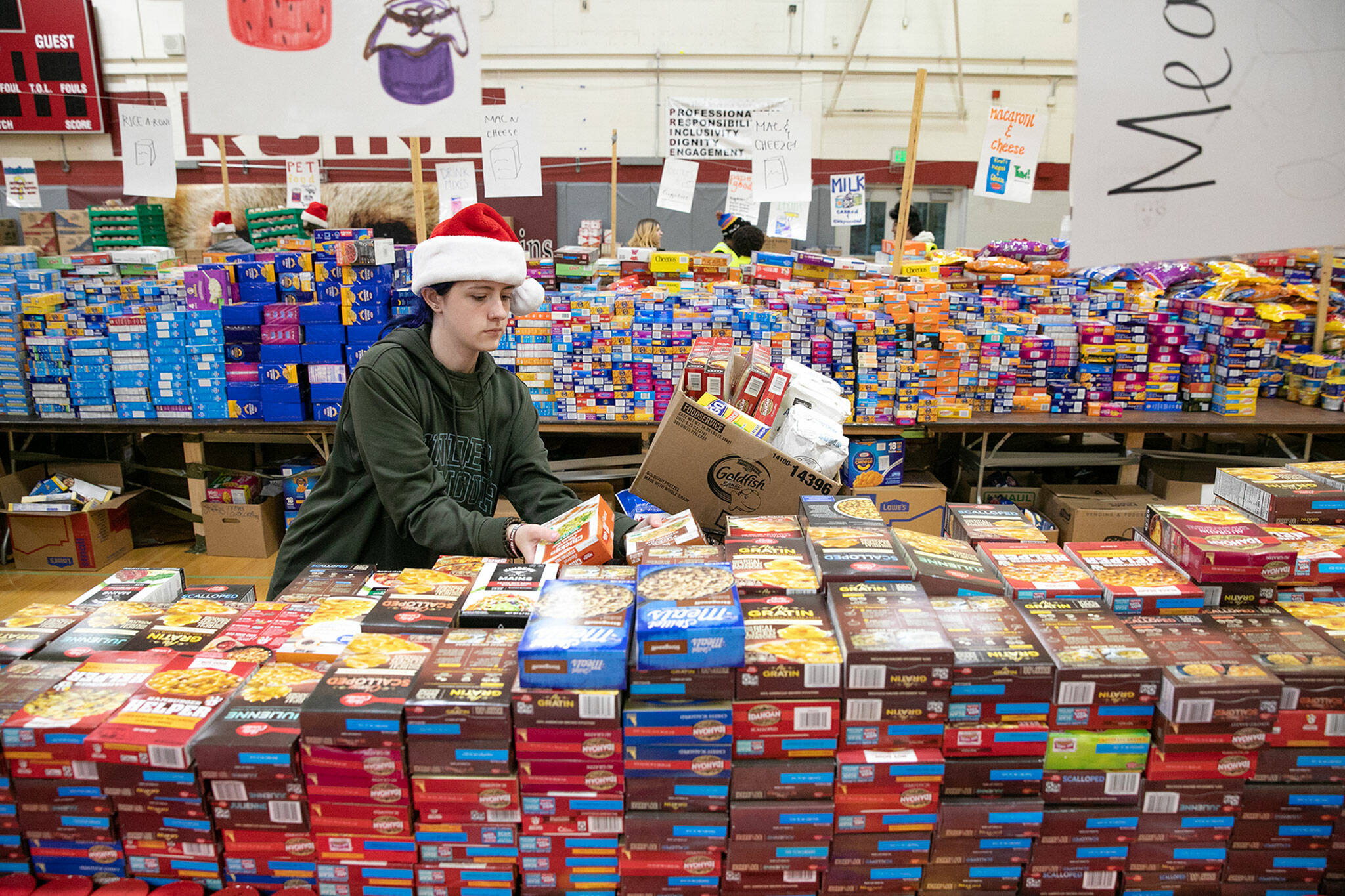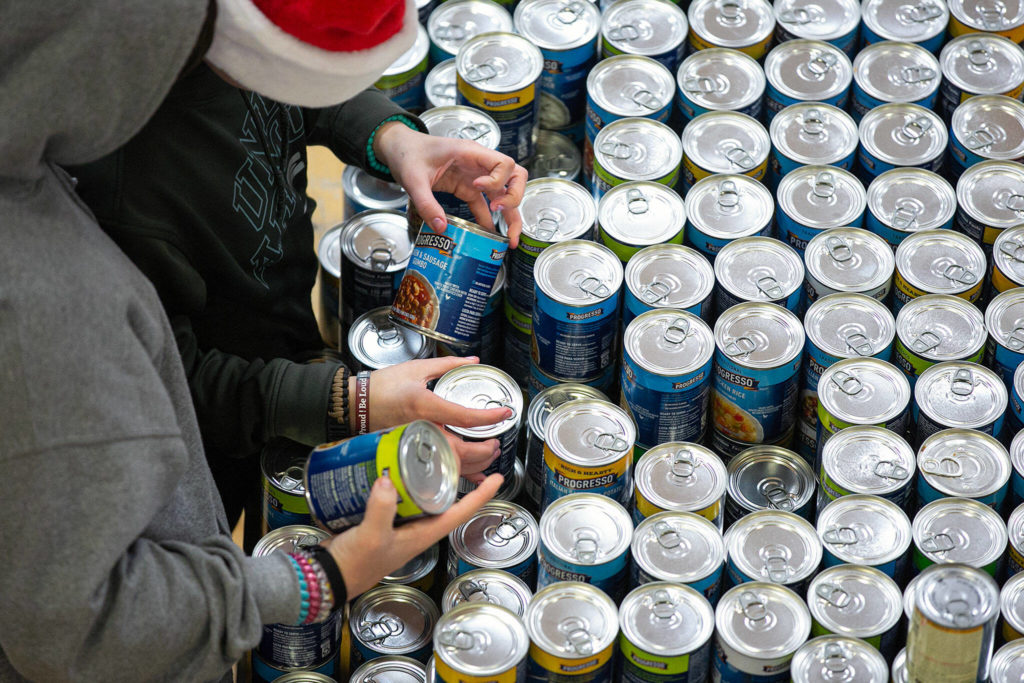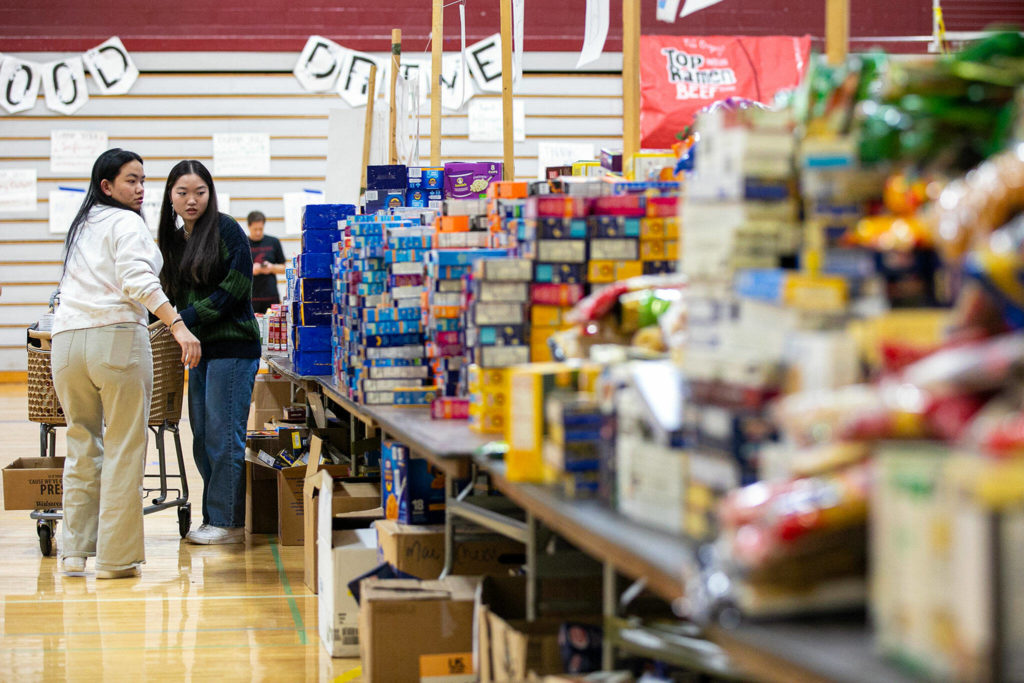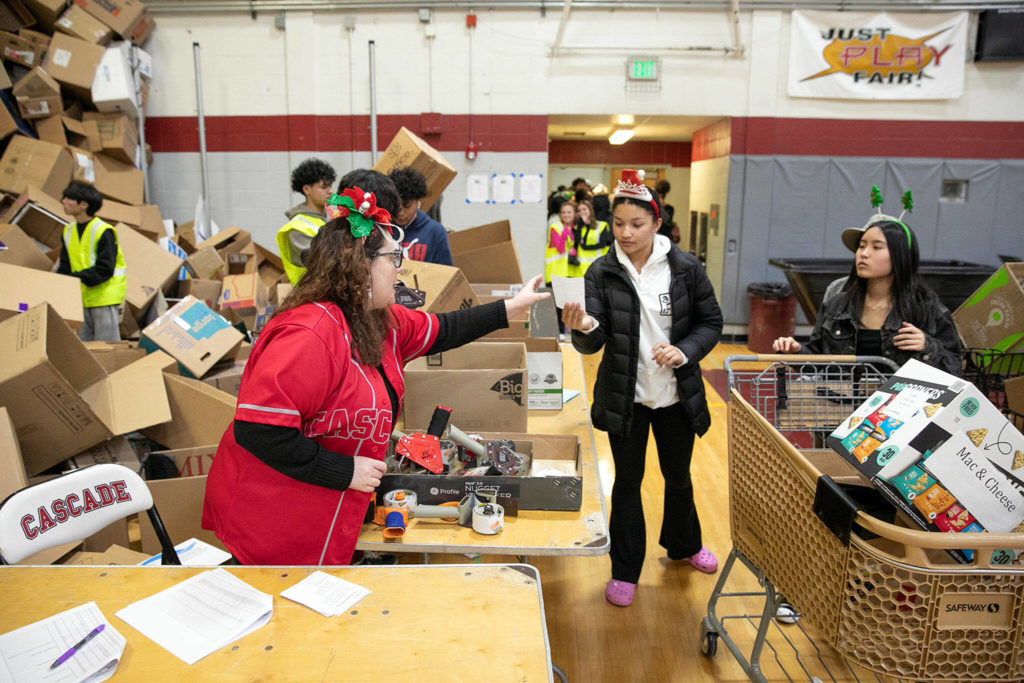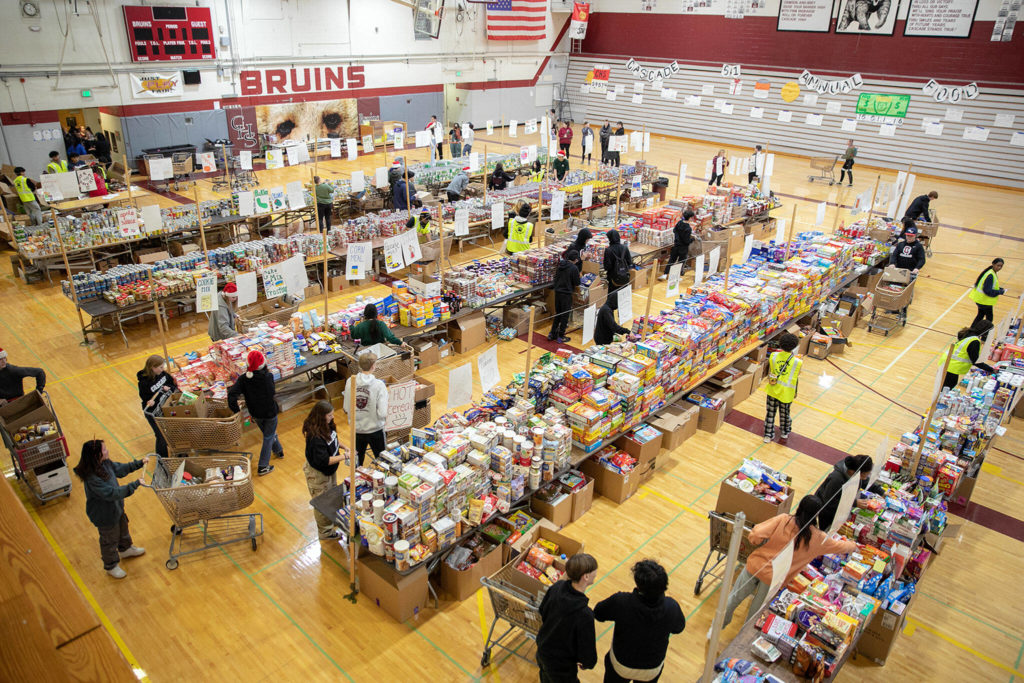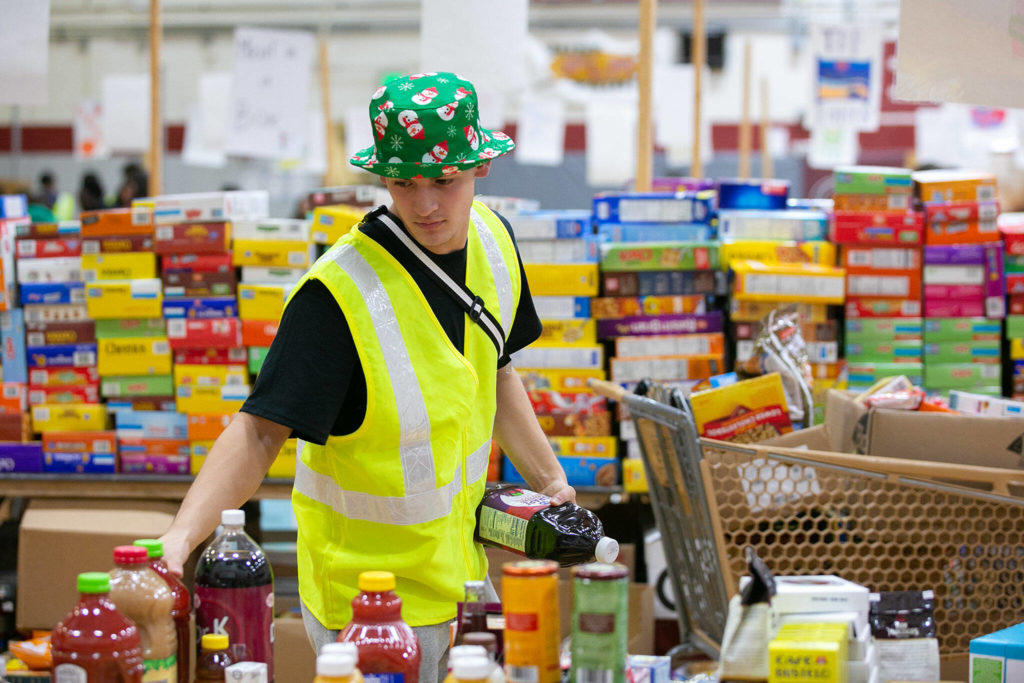EVERETT — Reilly Jordan balanced a box filled to the brim with canned corn, cake mixes and other nonperishables on the handle of a shopping cart while his sister, Ainsley, scouted out snack foods down the final aisle of a makeshift grocery store in the Cascade High School gym on Wednesday.
“Chocolate filled marshmallows? They’re getting these!” Ainsley Jordan said as she placed the sweets in a box.
The siblings, who are Cascade alumni, were “shopping” for a family of five. They weaved through about six rows of tables spanning the length of a full basketball court, each stacked high with canned goods and boxed meals collected in the past two weeks by Cascade students for the school’s 61st food and gift drive.
“You are helping your peers in your community, and the people you know,” Ainsley Jordan said. “You see the impact a lot more. It touches closer to home.”
The event brings together students, alumni and neighbors to feed around 150 families living in South Everett. And this year, for the first time since the pandemic started, it feels much more like the six-decade tradition Cascade has come to love, said Kelly Rogers, adviser for the Cascade Associated Student Body.
“We are actually getting back more back to its original food drive way, and we are back at more stores,” Rogers said. “Last year was kind of traditional too, but it was kind of getting people back into it.”
The drive is a “massive, joyful holiday undertaking” that has happened at Cascade every year since the school opened in 1961, Rogers said. It’s led by the ASB and aims to involve every one of the nearly 1,800 enrolled students. Parents also jump in to help.
“I think it’s always just been part of the culture of our school, so once it gets going it just goes,” Rogers said. “And then it’s almost contagious.”
Starting Nov. 28, students signed up for shifts “canning” at local grocery stores after school and on the weekends. For 1½ to 2 hours, they work in groups to greet shoppers, explain the drive and collect donations. Each morning, the students unload the food into the gym, where it’s counted and sorted on long rows of tables with corresponding signs for each food type.
The Wednesday before winter break — this year Dec. 14 — is known as “shopping day.” Students and other volunteers sign up to fill boxes of food for local families. The families are selected by the Volunteers of America Western Washington and the Salvation Army, based on an application process to determine need. Their identities are kept anonymous through most of the drive, so the “shoppers” only know how many people are in the family and what ages their kids are.
The shoppers fill one box for every person in the family, plus three to five extra boxes, depending on how much food was donated. They also stop by the “giving tree” to pick out and wrap presents for the children.
The next day, small groups of volunteers deliver the food and gifts to the families in what’s known among students as “rider-driver.” Most of the groups are led by students, but alumni and other adults help deliver boxes that go to families with children at Cascade, to maintain privacy for those students, Rogers said.
Any leftover food is donated to local food banks.
This year students collected nearly 40,000 cans of food, $15,000 in cash donations and 1,337 gifts. Sophomore Joshua Iraola contributed at least 18 carts worth of donations toward that total, and he inspired several other students’ canning shifts with a tips and tricks video that shared the secret to his success on the school’s social media pages.
The advice included adages like, “Stay kind, even if someone declines to donate” and “Consider helping return stray shopping carts to show your respect for the store.”
Iraola canned at the QFC on Evergreen Way, where last year he collected about three to four carts per shift. This year, he said the location was a “gold mine.” On his first shift, he and a classmate ended with eight carts. Then, the next day, 10 more.
“We were so surprised. We were shocked,” he said. “We were trying to figure out how we were going to get this to the school.”
He guessed some worries have eased over masking and social distancing for COVID after the worst of the pandemic, and that spurred some of this year’s generosity. Shoppers seemed more willing to interact in person, he said.
The waning pandemic also served as a rallying cry for the students. Senior Adam Dungan, the ASB spirit coordinator, said the student leaders who organized the event focused the drive on “unifying our community and bringing up spirits after COVID.”
That really hit home during deliveries, when the students saw where the food really goes. It’s more moving than most food drives, because you meet the neighbors who benefit, said senior Alex Lopez, the ASB president.
“It’s one thing to go shopping for them, but it’s another to see the family you’re going to,” Lopez said.
Dungan added that it “gives us a lot more passion when it comes to (the) food drive.”
“They definitely appreciate the gifts we give out.”
Mallory Gruben is a Report for America corps member who writes about education for The Daily Herald.
Mallory Gruben: 425-339-3035; mallory.gruben@heraldnet.com; Twitter: @MalloryGruben.
Talk to us
> Give us your news tips.
> Send us a letter to the editor.
> More Herald contact information.
